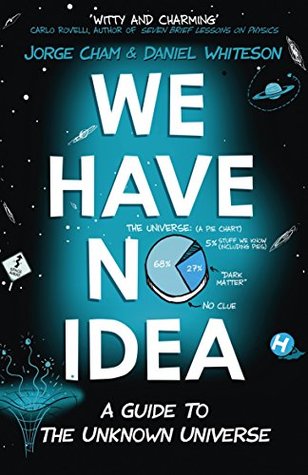More on this book
Community
Kindle Notes & Highlights
by
Jorge Cham
Read between
November 18, 2018 - June 18, 2020
Mass is the property of objects that makes them resist changes in velocity.
One of them (inertial mass) is how resistant something is to being moved, and the other (gravitational mass) is how much it wants to be moved by gravity.
physics depends on math to express the laws of physics,
Math is the language of physics the way English is the language of Shakespeare.
math relies on physics to give it useful things to do. Without physics, math would be limited to abstract concepts,
Science is a pretty useful tool for answering many different kinds of questions, but it has its limitations. Namely, scientific theories have to make testable predictions that can be validated in experiments.
If a theory can’t be tested with experiments, then it falls in the realm of philosophy or religion or pure speculation.
Sometimes you can’t take a theory all the way to its logical conclusion.
Not every question has a satisfying answer because not every question is well posed. That might be the case for questions such as “What happens after you die?” because it depends on whether there is still a “you” after “you” die.
we live in a universe that is like an onion. Not because it makes everyone cry when you slice it or because it’s an essential ingredient in any great soup but because it’s made up of layers and layers of emergent phenomena.
we seem to live in a universe where perfectly good theories can work even if they completely ignore what is happening underneath at smaller distances. In other words, you can accurately predict the collective action of all the little parts of something even if you don’t know anything about what those little parts are doing (or if they even exist).
visiting other cultures lets you learn which parts of your culture are universal to humans because they come from deep fundamental needs of humanity (eating, sleeping, caffeine, etc.) and which are local random choices that might seem fundamental to us (toilet stalls, utensils, tentacles for breakfast, etc.) but could easily have been different. Seeing another culture is the best way to learn which things you thought were universal but are actually local.
In fact, anything with a finite probability occurs infinitely often. Only things with infinitely small probabilities occur exactly once.
in human history what happens when a powerful culture meets a weaker culture: it rarely ends well for the more primitive side.


